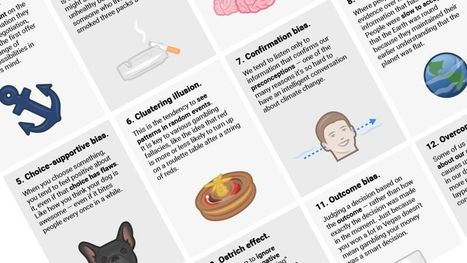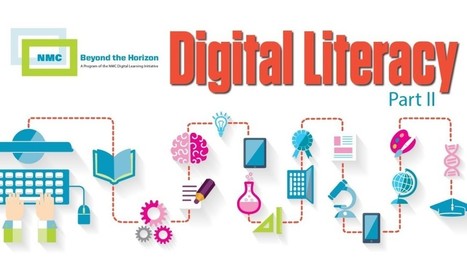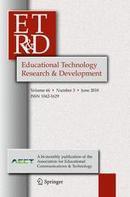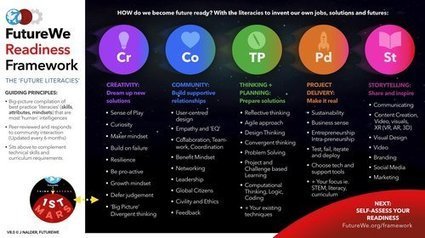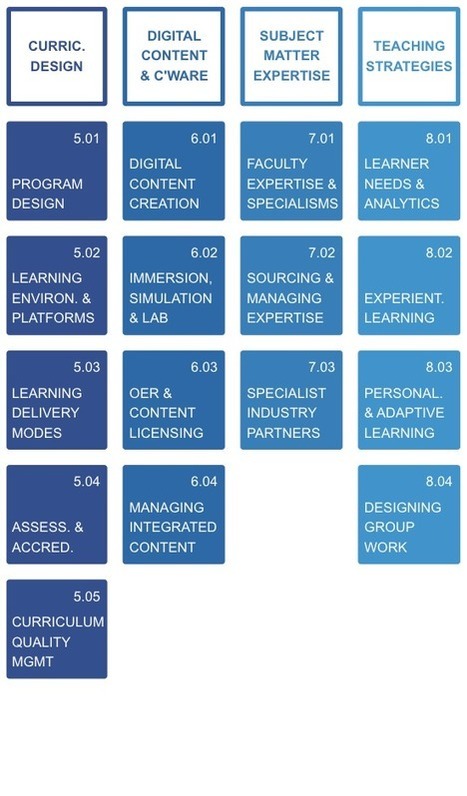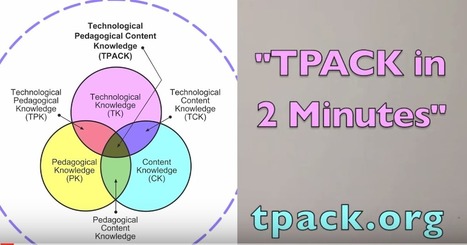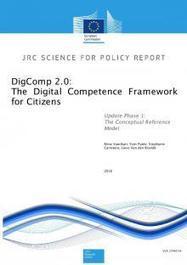How, as content creators and learning designers, do we start to think about and approach race and racism in our work? How do we do this individually and when working with programme teams?
In our previous post we introduced some of the ways in which race and racism feature in all levels of content creation. But how can we ensure we consistently consider and address these different aspects in our work?
Get Started for FREE
Sign up with Facebook Sign up with X
I don't have a Facebook or a X account

 Your new post is loading... Your new post is loading...
 Your new post is loading... Your new post is loading...
Current selected tag: 'frameworks'. Clear
From
bigthink
20 cognitive biases in a chart that could keep you from making a bad decision.
Peter Baumann suggests that our biases can get a bad rap, but that they're essential. He sees them as unconscious inclinations that we've developed over time, and most of the time, they reflect actual knowledge we've acquired about how the world works. They set the frameworks within which we live our lives. Our bias toward feeling safe, for example, keeps us (mostly) out of trouble, while a bias towards certain flavors sets us parameters for selecting the dish we'd like to eat at a restaurant. Of course, our biases are only as intelligent as we are, so occasionally they're pretty stupid.
New NMC Report Provides a Rich Look at Digital Literacy Models, Exemplars, and Explorations Within Higher EducationI spent a good deal of time with this excellent report this weekend, exploring the models, examples, and expert commentary on a subject that near and dear to me. The New Media Consortium first explored Digital Literacy in their 2016 report which ultimately provided some simple definitions of Digital Literacy (shown in graphic below).
The flipped classroom approach is becoming increasingly popular. This instructional approach allows more in-class time to be spent on interactive learning activities, as the direct lecturing component is shifted outside the classroom through instructional videos. However, despite growing interest in the flipped classroom approach, no robust frameworks have been developed for the design or school/faculty-wide implementation of flipped classrooms. The aim of this article is to provide a foundation for the flipped classroom approach in Spector’s (Foundations of educational technology: integrative approaches and interdisciplinary perspectives, Routledge, New York, 2016) model of six pillars of educational technology. After reviewing previous discussion of the flipped classroom approach, each pillar (i.e., communication, interaction, environment, culture, instruction, and learning) is discussed in the context of flipped learning.
If we could build a new framework to show how learners and leaders can thrive in the future, what would it look like?
I spent a good deal of time with this excellent report this weekend, exploring the models, examples, and expert commentary on a subject that near and dear to me. The New Media Consortium first explored Digital Literacy in their 2016 report which ultimately provided some simple definitions of Digital Literacy (shown in graphic below).
This report introduces each of the six stages as a self- contained phase, offering a narrative and a checklist to guide your journey. While presented in a linear format, our research shows that companies may span multiple stages at once depending on their goals, resources, and overlapping initiatives. Use this framework to validate, benchmark, and map your company’s progress toward digital literacy and leadership, but know that you may find yourself revisiting and overlapping stages throughout program and strategy deployment.
Daniel Tremblay's curator insight,
November 30, 2016 8:45 AM
Un rapport de 55 pages. Un "one-pager" résumé aurait été utile mais tout le détail est là!
|
The Higher Education Digital Capability framework identifies four core dimensions along the learner lifecycle: Demand & Discovery (DD), Learning Design (LD), Learner Experience (LX) and Work & Lifelong Learning (WL). Within these are sixteen capability groups or ‘domains’, with more than 70 capability blocks adding a further level of detail. Overall, the framework is designed to allow flexibility and interpretation in context; some institutions will find almost every capability block relevant to their organisational structure, activities and aspirations, whilst others will focus on a more specific set of capabilities applicable to their individual context.
In this guest post blog, Greg Walters discusses a new digital/information literacy framework and interactive learning object he has been a part of developing at the University of Glasgow (UofG). Greg is the Learning Technologist based at the UofG Library. He has been involved in the e-learning sector since 2005 and developed a range of under- and postgraduate online courses for the Higher Education and commercial sectors. Part of Greg’s role at UofG has involved developing and communicating rights management policies and procedures to support online learning development at UofG, specifically relating to Blended and Online Learning Development (BOLD) initiatives and MOOCs. He is part of the Scottish Confederation of University and Research Libraries (SCURL) Copyright & Legal Issues steering group which formed in November 2018.
Bianca Jacobs's curator insight,
May 14, 2019 8:19 AM
Information is important for the learners to understand and recognize when working with websites. This website helps understand information literacy better.
Technology is definitely a game changer in today’s classroom. Its pervasive widespread in educational settings speaks volumes about the growing importance we come to place in it. However, while many teachers have already domesticated some of this technology into their daily workflow (e.g, preparing handouts and docs, creating lesson plans, communicating with students and parents…etc) a pragmatic leverage of this technology for instructional purposes remains barely noticeable. By pragmatic leverage we mean the use of technology to enhance key cognitive skills such as higher order thinking skills, critical thinking skills, and problem solving to mention a few.Technology integration in this sense is not an end in and by itself by a means, a roadmap to facilitate teaching and learning.
The 3E framework assists teachers with the practical implementation of technology in their classes. It is based on a continuum which includes the following elements:
The examples provided in the U of S version of the 3E learning technologies framework include the six key components of our digital information literacy initiative.
The Essential Fluencies are a solid foundation for effective modern learning. They cover all the bases of the skills students need for success beyond school. Developing these Fluencies in our students is a critical thinking journey in itself. That’s why you’ll find good questions at the heart of Essential Fluencies development.
This paper offers a newly conceptualized modular framework for digital literacy that defines this concept as a task-driven ‘‘social constructivist digital literacy,’’ comprising 6 practice domains grounded in Constructionism and social constructivism: Create, Manage, Publish, Socialize, Research, Surf. The framework articulates possible instructional design and research operationalizations for the concept, based upon a coordinated set of activities centering on student game design. The paper then reports on results of an implementation study involving game design drawing upon the framework, addressing ways in which the practice domains inter-operate when the specified instruction is offered as a coordinated intervention.
From
ec
DigComp 2.0: The Digital Competence Framework for Citizens. Update Phase 1: the Conceptual Reference Model. - EU Science Hub The European Digital Competence Framework for Citizens, also known as DigComp, offers a tool to improve citizens’ digital competence. DigComp was first published in 2013 and has become a reference for many digital competence initiatives at both European and Member State levels. This document introduces DigComp 2.0. It constitutes phase 1 of the update of the framework which focuses on the conceptual reference model, new vocabulary and streamlined descriptors. The current document also gives examples of how DigComp is used at the European, national and regional levels. Via Fiona Harvey 
Fiona Harvey's curator insight,
July 5, 2016 8:19 AM
Extremely thorough and now updated digital competence framework. Useful for setting up skills and development of digital skills.
|





